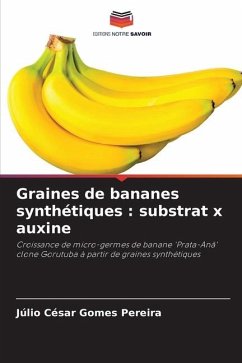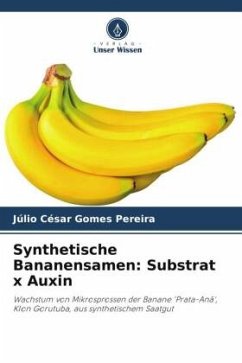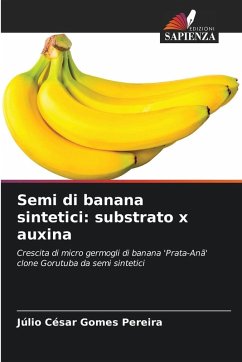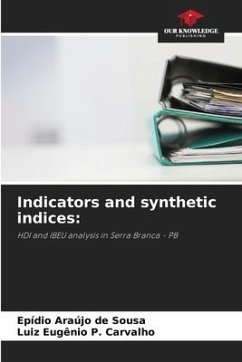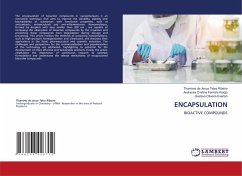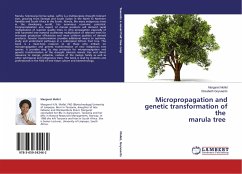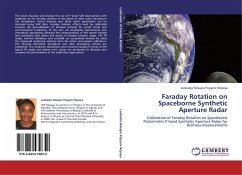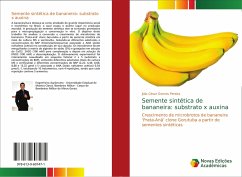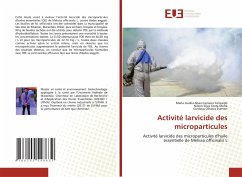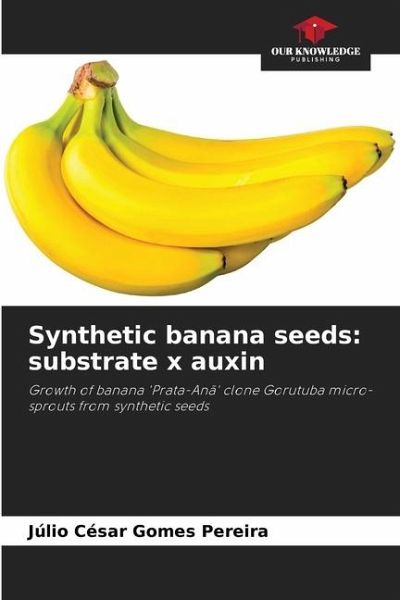
Synthetic banana seeds: substrate x auxin
Growth of banana 'Prata-Anã' clone Gorutuba micro-sprouts from synthetic seeds
Versandkostenfrei!
Versandfertig in 6-10 Tagen
24,99 €
inkl. MwSt.

PAYBACK Punkte
12 °P sammeln!
Banana growing is an activity of great social and economic importance in Brazil, which ranks fifth in world production. The production of synthetic seeds has become promising for micropropagation and in vitro conservation. The aim of this work was to analyse the conversion and growth of banana 'Prata-anã' clone Gorutuba micro-sprouts from synthetic seeds in MS culture medium and vermiculite, testing different substrates and concentrations of BAP (6-benzylaminopurine) associated with ANA (naphthalene acetic acid) in the constitution of its capsule. The micro-sprouts were immersed in a sodium a...
Banana growing is an activity of great social and economic importance in Brazil, which ranks fifth in world production. The production of synthetic seeds has become promising for micropropagation and in vitro conservation. The aim of this work was to analyse the conversion and growth of banana 'Prata-anã' clone Gorutuba micro-sprouts from synthetic seeds in MS culture medium and vermiculite, testing different substrates and concentrations of BAP (6-benzylaminopurine) associated with ANA (naphthalene acetic acid) in the constitution of its capsule. The micro-sprouts were immersed in a sodium alginate matrix (3%) and dripped into a CaCl2. 2H2O solution (100 mM) for complexation and then into a KNO3 solution (100 mM) for decomplexation. The experimental design was entirely randomised in a 2 x 5 factorial scheme (substrate x BAP concentrations), containing different substrates (MS culture medium and vermiculite) and different concentrations of BAP (2.22; 4.44; 6.66; 8.88 and 13.32 mimol L-1) associated with ANA (naphthalene acetic acid) 0.54 mimol L-1, totalling 10 treatments, with 4 replicates, each replicate containing 5 seeds.





